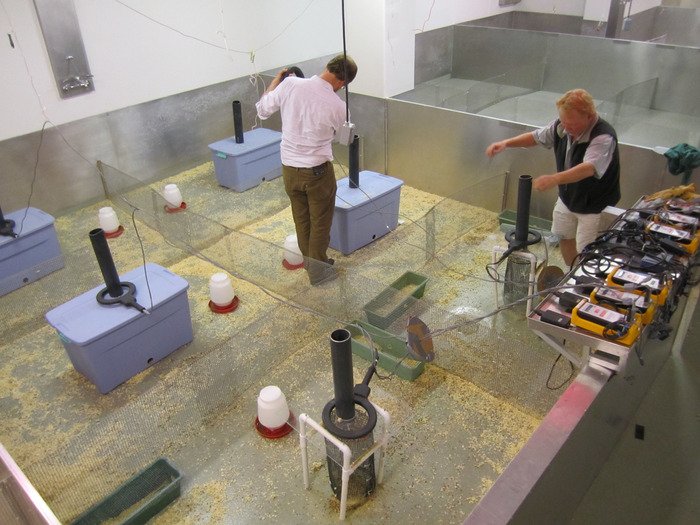The test placed groups of mice in room-sized pens nicknamed “mouse barns” with multiple nest boxes to create a more realistic environment and allow the mice to compete more naturally for mates and desirable territories. University of Utah photo.
SALT LAKE CITY, Aug. 13 (UPI) -- Added sugar consumed at concentrations currently considered safe for humans exerts dramatic adverse impacts on mammalian health, U.S. researchers say.
Senior author Wayne Potts, a biology professor at the University of Utah, said when mice ate a diet of 25 percent extra sugar -- the mouse equivalent of a healthy human diet plus three cans of soda daily -- females died at twice the normal rate and males were a quarter less likely to hold territory and reproduce.
Previous studies fed mice large doses of sugar disproportionate to the amount people consume in sweetened beverages, baked goods and candy, Potts said.
The study, published in the journal Nature Communications, showed the 25 percent "added-sugar" diet -- 12.5 percent dextrose, the industrial name for glucose, and 12.5 percent fructose -- was just as harmful to the health of mice as being the inbred offspring of first cousins, Potts said.
Even though the mice didn't become obese and showed few metabolic symptoms, the sensitive test showed "they died more often and tended to have fewer babies," first author James Ruff said.
"We have shown that levels of sugar that people typically consume -- and that are considered safe by regulatory agencies -- impair the health of mice."
Ruff noted sugar consumption in the U.S. diet increased 50 percent since the 1970s, accompanied by a dramatic increase in metabolic diseases such as diabetes, obesity, fatty liver and cardiovascular disease.
The new test placed groups of mice in room-sized pens nicknamed "mouse barns" with multiple nest boxes to create a more realistic environment and allow the mice to compete more naturally for mates and desirable territories, the researchers said.















